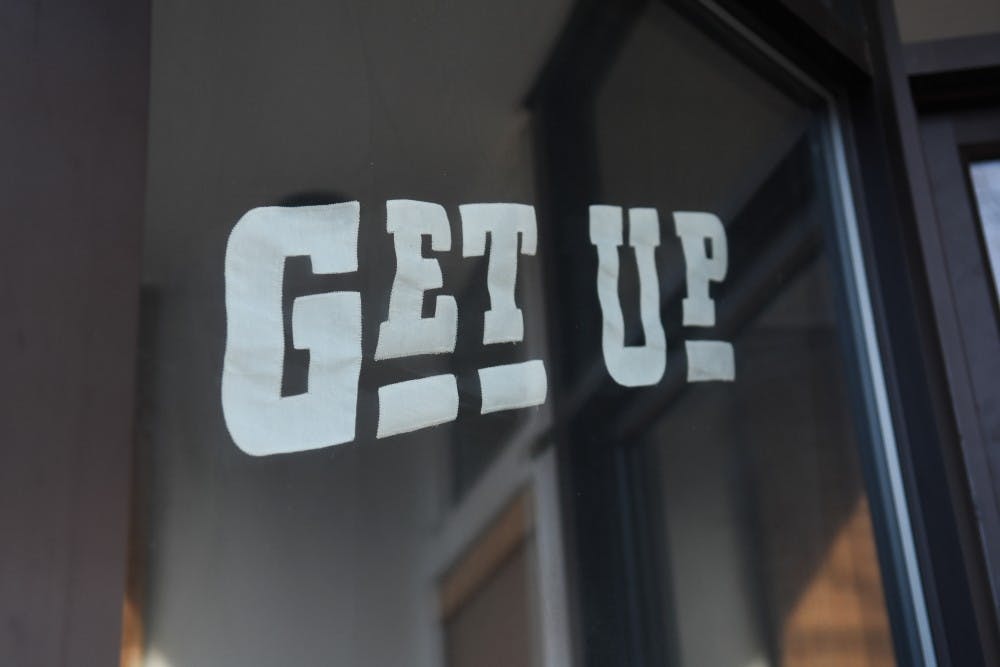
In February 2003, Penn graduate students placed ballots in a box in Houston Hall. After two days, organizers sealed the box and sent it to the National Labor Relations Board so the votes could be counted.
To this day — 14 years later — no results have been released. No one knows if the student worker union in question would have been established.
The campaign among graduate students to unionize under the name Graduate Employees Together — University of Pennsylvania is not new. According to GET-UP’s website, the organization began in the fall of 2000 after the NLRB recognized New York University’s graduate students’ right to unionize as employees and thus set a new precedent in higher education.
Todd Wolfson, a 2009 College Ph.D. graduate and former member of GET-UP, said he and the members of the original GET-UP, known now as GET-UP 1.0, believed at that time that they would have been able to unionize, following NYU’s example.
But he explained that the problem was the political climate. NYU won their right under President Bill Clinton, who left office in 2001 and took his pro-labor views with him.
The GET-UP website says Penn was reticent to allow its graduate students to form a labor union in the early 2000s. Not only did the administration enlist anti-union law firms to delay the initial election for more than a year, they also refused to recognize the election after it happened, instead seeking to “overturn the legal precedent that protected graduate students’ right to organize at private universities.”
In 2004, GET-UP’s website says President George W. Bush appointed new NLRB members who overturned the precedent from NYU. As a result, Wolfson said, the election was ruled invalid and the votes were impounded, never to be counted.
Wolfson called this “abominable.”
He said he thinks the results of an exit poll that The Daily Pennsylvanian conducted during the election support that the pro-union side would have won. According to the original article in the DP from March 2003, 60.4 percent of eligible voters in the election voted yes; 35 percent voted no, and 4.6 percent chose not to reveal their opinion to the pollers.
The article referred to Ed George, a Wharton statistics professor, who said that the results fell within “95 percent confidence intervals.”
Since the vote included those who would not be covered by the union in the form of "challenge ballots" — only to be counted in certain circumstances — the article explained that this opposition could have swayed the vote, but, since the votes were never counted, nobody will know.
Joe Wuest, a fourth-year School of Arts and Sciences Ph.D. student and a member of the current iteration of GET-UP, said that he does not regard GET-UP 1.0's effort as unsuccessful — although it may not have resulted in a union, it caused other changes on campus.
Joe Kable, a 2004 Perelman School of Medicine Ph.D. graduate and former GET-UP member, added that the union inspired more participation from graduate students across the University.
“It sort of energized them,” he said. “I think that there were lots of positive effects even though not all the goals were achieved."
Wolfson provided specifics — he explained that before GET-UP, doctoral students would come to Penn with funding packages that spanned from zero to five years and did not receive health care. Now, there are standardized funding packages by department — such as those from the School of Arts and Sciences that guarantee most students five academic years — and health care for everyone.
“These things would not have happened … without us organized,” he said. “It’s not like one day [former president] Judith Rodin or Amy Gutmann woke up and were like, ‘Oh, I’m really worried about graduates wanting health care.’"
Still, Wolfson, Kable and Wuest agree that there remains progress to be made. Although there were advances, there still does not exist a contract, Kable said.
Wuest worries that the current efforts could end in the same manner as the previous one due to the current conservative political climate.
“It’s really kind of sick, in some senses,” he said. “Amy Gutmann has named Trump a bad guy in terms of the ban and it’s great, but it is kind of strange that administrators are basically waiting for Trump to change the NLRB [so it] can take our right again."
The Daily Pennsylvanian is an independent, student-run newspaper. Please consider making a donation to support the coverage that shapes the University. Your generosity ensures a future of strong journalism at Penn.
Donate






